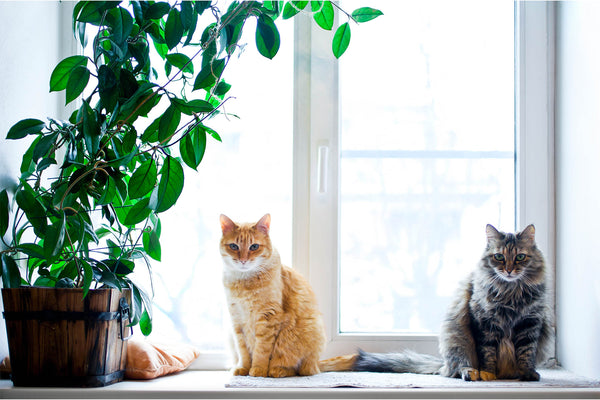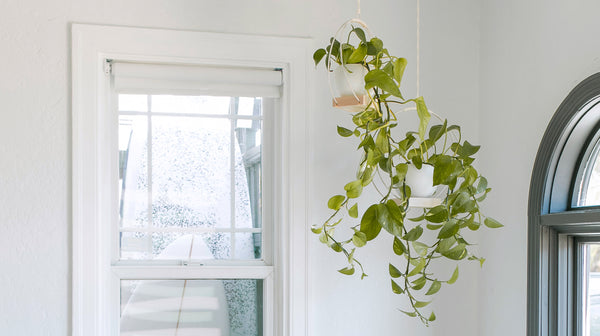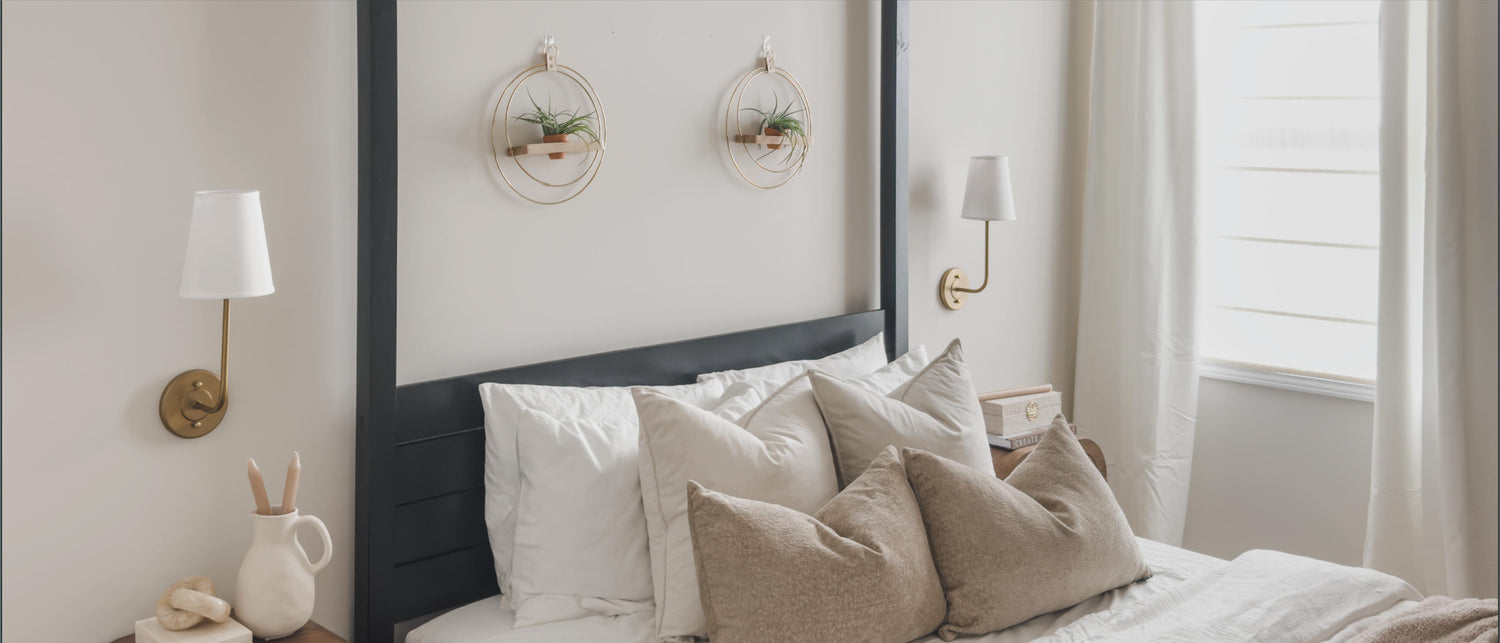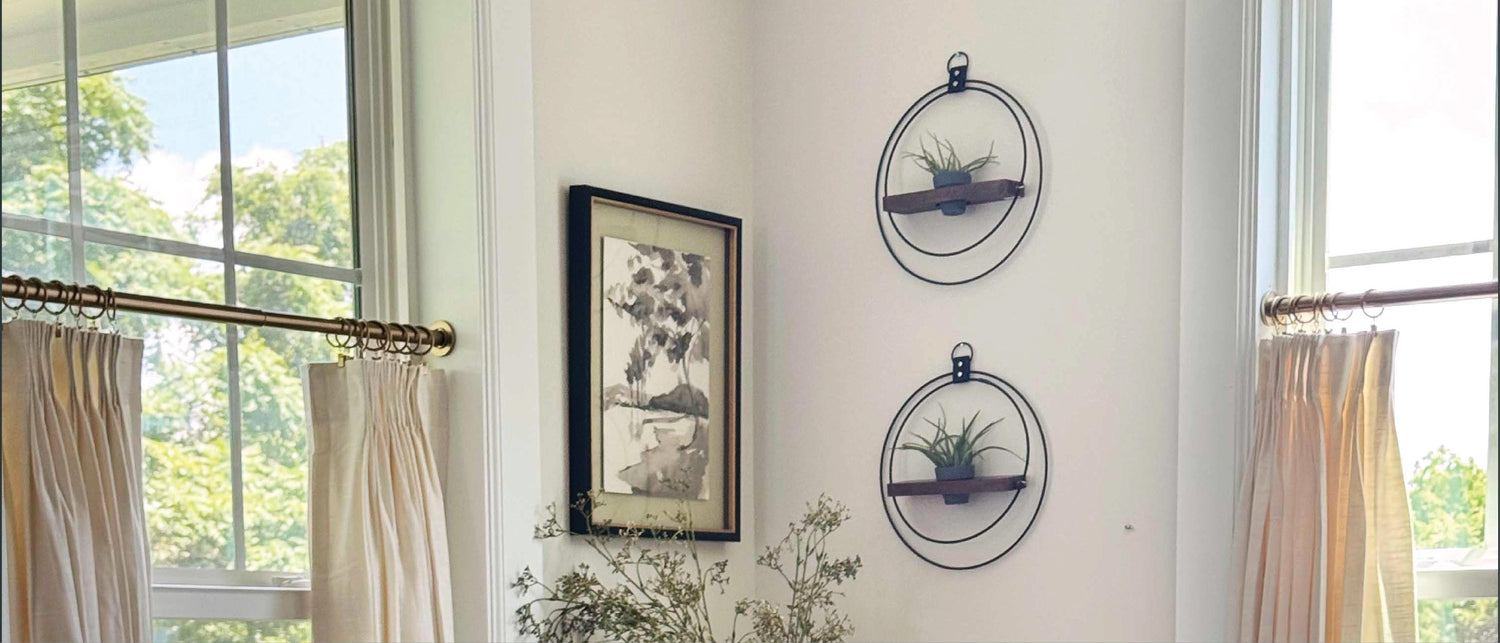What Indoor Plants Are Toxic to Cats? Here Are The Top 10 Plants to Avoid.

As a responsible pet parent, you probably already know there are lots of do's and don'ts to look into when taking care of your feline friends. To make sure your fur angels are healthy and safe, you might be wondering what indoor plants are toxic to cats, and if there are any plants you should avoid.
In our helpful article today we will take you through how to ensure your kitties are 100% safe around your indoor houseplants.
Before delving into our guide on the top 10 houseplants to avoid, please note that we are NOT pet care experts! If you are unsure or have noticed your cat has eaten something you don't recognize, call your vet right away to seek the proper advice and care.
OK, now that we have that legal disclaimer out of the way let's dive right in and find out why it's important to discover if your houseplants are toxic to your cats!
Why Is It Important To Find Out If A Plant Might Be Toxic?
Although we understand that a beautiful splash of greenery, especially from stylish hanging plants, can really help to bring your space to life, here are a few things you'll want to know if you own cats:
- It’s important to double-check whether an indoor plant is toxic before bringing it into your home
- The most common symptoms a cat can experience after ingesting a toxic plant are gastric upset or skin irritation
- Serious cases ingesting a toxic plant can lead to organ failure, seizures, or even death
10 Indoor Plants That Are Toxic To Cats
So although most house plants can brighten up a corner and may look stylish some might not bring so much pleasure to your feline companions.
So, which houseplants are best to avoid if you have a cat?
Let’s find out!
Aloe Vera
Although Aloe Vera is very well known for its healing properties in humans, it is poisonous to your furry feline friends. However, that toxicity is mild to moderate for both cats and dogs.

Symptoms you might notice if your cat has ingested Aloe Vera: vomiting, diarrhea, lethargy, depression, anorexia, tremors, and even changes in urine color.
Dumb Canes
Dumb cane, sometimes also known as dieffenbachia or charming dieffenbachia are toxic to cats. Some of the symptoms can be quite serious.
Symptoms you might notice if your cat has ingested part of a Dumb Cane plant: oral irritation including irritation of the mouth, tongue, and lips. In addition your cat my experience excessive drooling and difficulty swallowing.

English Ivy
English Ivy is a very popular trailing houseplant and is also known as California or Sweetheart Ivy. English Ivy can be toxic to both cats and dogs.
Symptoms you might notice if your cat has ingested English Ivy: behavior consistent with mild to sever abdominal pain. Vomiting, diarrhea, and excessive salivating are also clear signs that your cat is in distress.
Jade Plants
The jade plant is known by many names, including Baby Jade, Jade Tree, and Chinese Rubber Plant.
Symptoms you might notice if your cat has ingested part of a Jade Plant: choking behaviors. It is not advised to treat your cat at home if this occurs as it could possibly worsen the condition.

Peace Lilies
Peace Lilies are one of the most popular house plants. However, Peace Lilies contain toxins that can be harmful to cats as well as humans. The calcium oxalate contained in the Peace Lily can cause vomiting if consumed. Peace Lilies are completely safe to the touch, they are only dangerous if the calcium oxalate is ingested.
Symptoms you might notice if your cat has ingested part of a Peace Lilly: irritation of the mouth and GI tract, excessive drooling and in some severe cases, difficulty swallowing or breathing.
Pothos Plant
The Pothos, also commonly referred to as the Money Plant, Ceylon Creeper, Devils Ivy, and Hunter’s Robe is poisonous to cats. This is due to the raphides and calcium oxalate found in the plant. All responsible cat parents are advised to keep this houseplant far away from their furry friends.
Symptoms you might notice if your cat has ingested part of a Pothos Plant: skin irritation, oral irritation, vomiting, and difficulty swallowing.
Shop hanging planters in our store here.

Rubber Plant
The well-known Rubber Plant or Ficus Elastica is mildly dangerous to cats. There are many different varieties of a rubber plant, including both the American and the Japanese versions. The Rubber Plant is slightly less toxic than other houseplants and causes more mild symptoms.
Symptoms you might notice if your cat has ingested part of a Rubber Plant: diarrhea, vomiting, lethargy or depression, and lack of coordination.
Shop hanging planters pictured here.

Snake Plants
Also known as Mother-in-law’s Tongue, Snake Plants are very popular in both our homes and office spaces because they thrive on neglect and do not need much light or water to survive. Toxin levels are low in the Snake Plant and it isn't likely to cause a serious threat to your cat unless she consumes a large amount. Snake plants contain a chemical compound called saponins which cause adverse reactions in cats.
Symptoms you might notice if your cat has ingested part of a Snake Plant: nausea, vomiting, and diarrhea.

One Of The Most Toxic Houseplants
Sago Palm
The Sago Palm is part of the cycad family of plants and is highly toxic to cats, dogs, and humans if consumed. According to feline health experts, even consuming a small amount of the Sago Palm may cause acute liver failure within two to three days of ingestion.
If you suspect your cat has eaten any part of the plant, contact your vet or the animal poison control hotline immediately especially if you notice a slowing heart rate, or loss of muscle function.

Poinsettia
One of our favorite holiday plants, the poinsettia is fairly well known to be toxic to pets including cats. However, the level of toxicity may be slightly exaggerated according to experts. While poinsettias are in a group of toxic plants, they are only mildly poisonous to humans and animals. The sap is an irritation and can cause mouth and stomach discomfort which can sometimes lead to vomiting. A HUGE amount would need to be consumer to cause any type of serious reaction or illness.
One Last Trick To Keeping Your Cat Safe and Healthy
We recommend a ceiling mounted plant hanger in order to keep your plants out of reach from your furry friend. Plant hangers are the perfect solution for getting your houseplants up & off the ground, high above where even the most adventurous cats won't be tempted to nibble.

If you are looking for a stylish and safe plant hanger to bring a touch of greenery into your home, then make sure you check out our store, with our wonderful selection of modern and minimal ceiling suspended and wall mounted plant hangers.
Our stunning range brings neutral colors and stylish features such as matte black plated stainless steel rings, dark walnut v-shelves, and even a touch of leather.


Will A Cat Actually Eat A Poisonous Houseplant?
Ok so now we’ve seen ten houseplants that are toxic to cats, you might be wondering how likely it is that your fur baby will snack on them!
Most cats are fastidious creatures and are careful about what they eat. Poisoning in cats is therefore generally rare.
It is the young inquisitive cat or kitten that is most at risk of eating harmful plants, particularly household ones.
With this information, you can go about removing any plants that may be unsafe for your furry little ones or put houseplants somewhere your cat can't get to!
What Do I Do If My Cat Has Eaten A Poisonous Houseplant?
If you think your cat has eaten part of a poisonous plant, promptly bring your cat to your veterinarian. If you can, take the plant with you for ease of identification.
"If you think that your animal is ill or may have ingested a poisonous substance, contact your local veterinarian or the ASPCA 24-hour emergency poison hotline directly at 1-888-426-4435."
And Finally…
We hope this info has helped all you responsible pet parents out there to understand a little more about the house plants that are toxic to cats.




